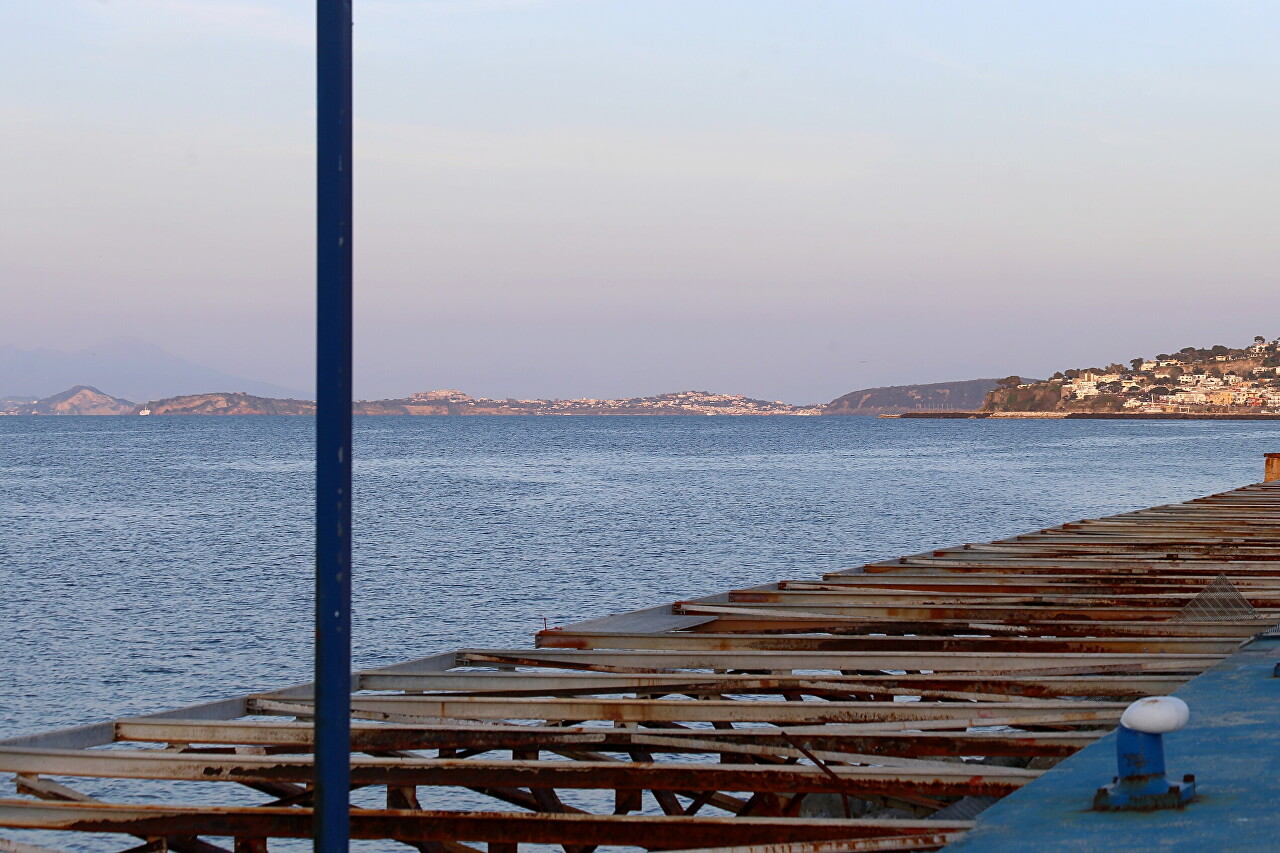Evening in Lacco Ameno. Walking on the Pier
At the junction of Corso Angelo Rizzoli and Via Roma is a small square that can be considered the center of the beach part of the town. Here, a long concrete pier goes out to sea.
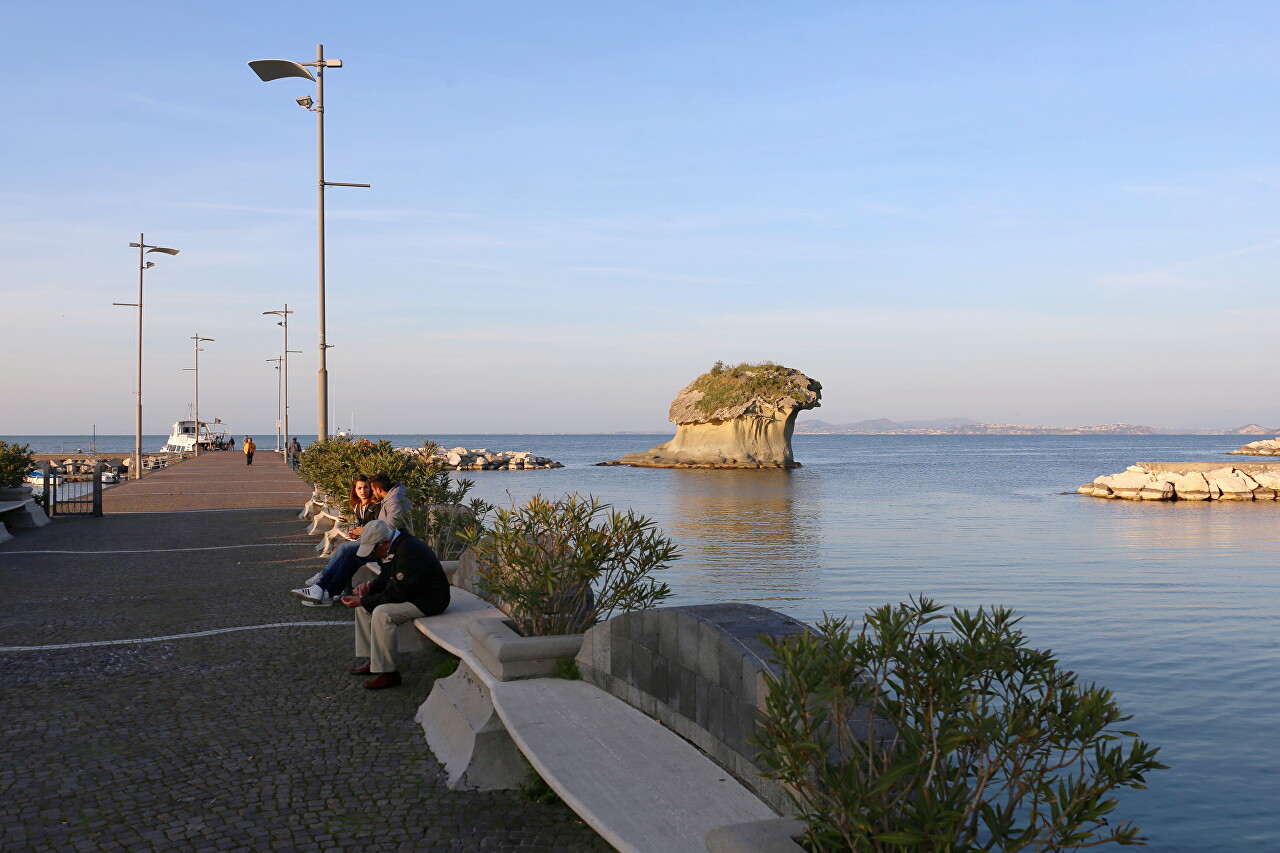
This is a great place for evening walks. If, of course, it is warm and there is no wind.
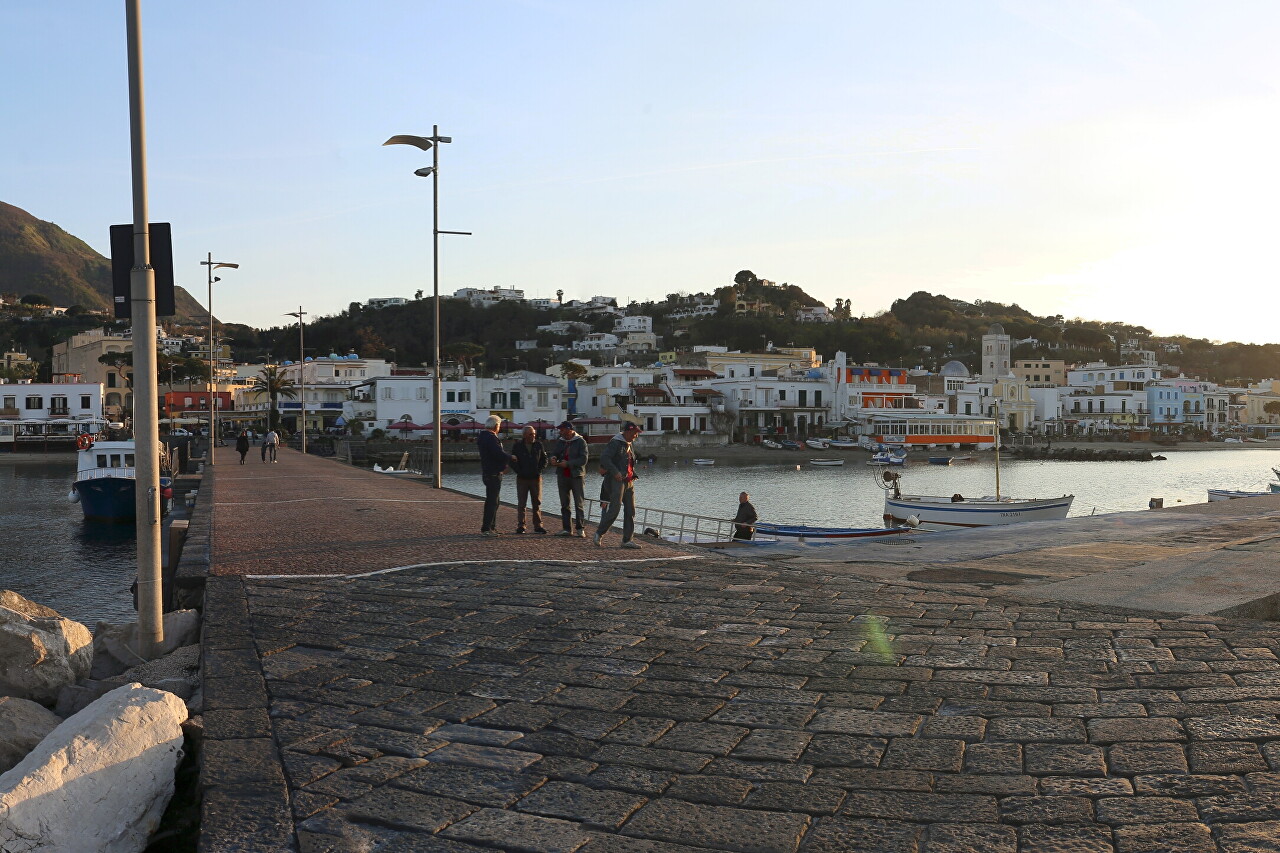
Pleasure boats around the island depart from the pier several times a day.
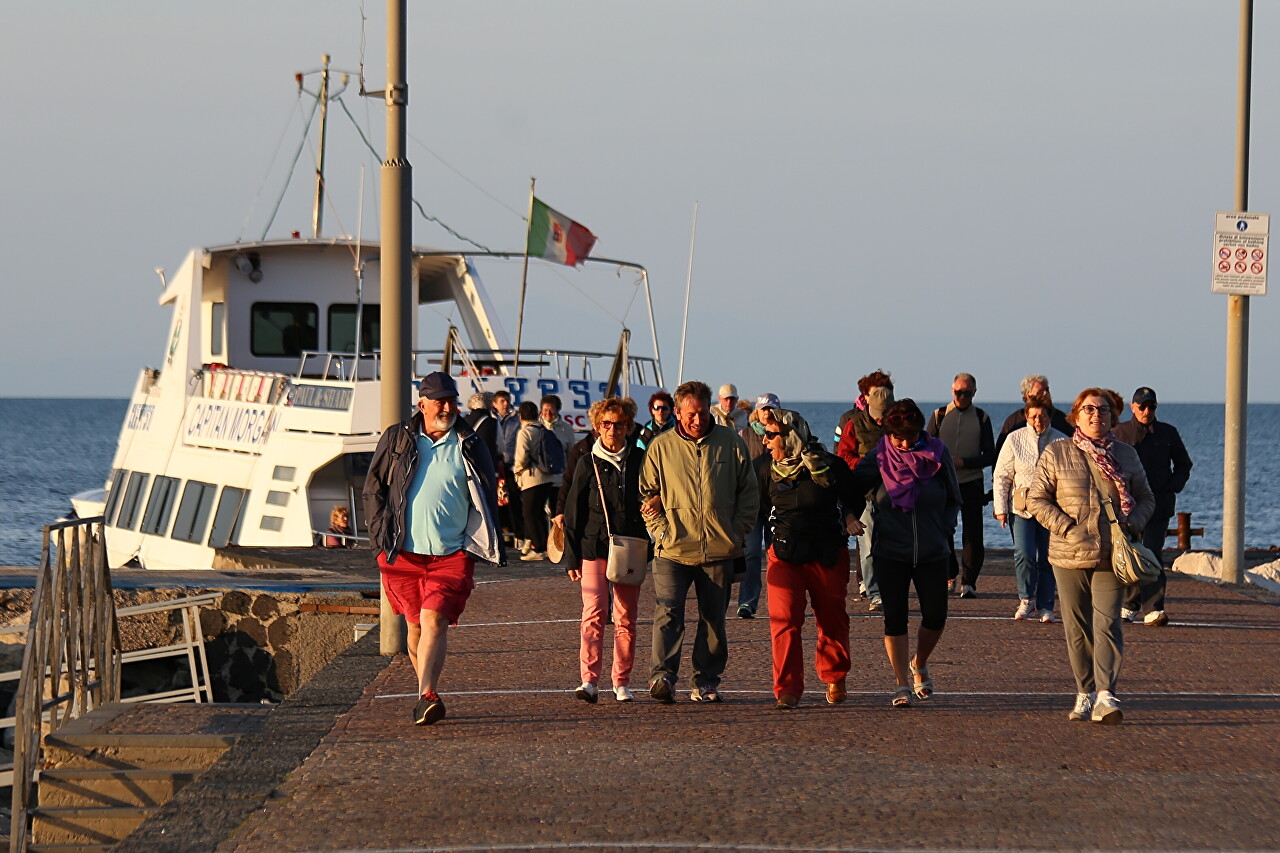
At the end of the pier, a mound of white boulders leads to the Il Fungo rock (Mushroom). You can get very close to it, but the rock is separated from the embankment by a channel several meters wide.
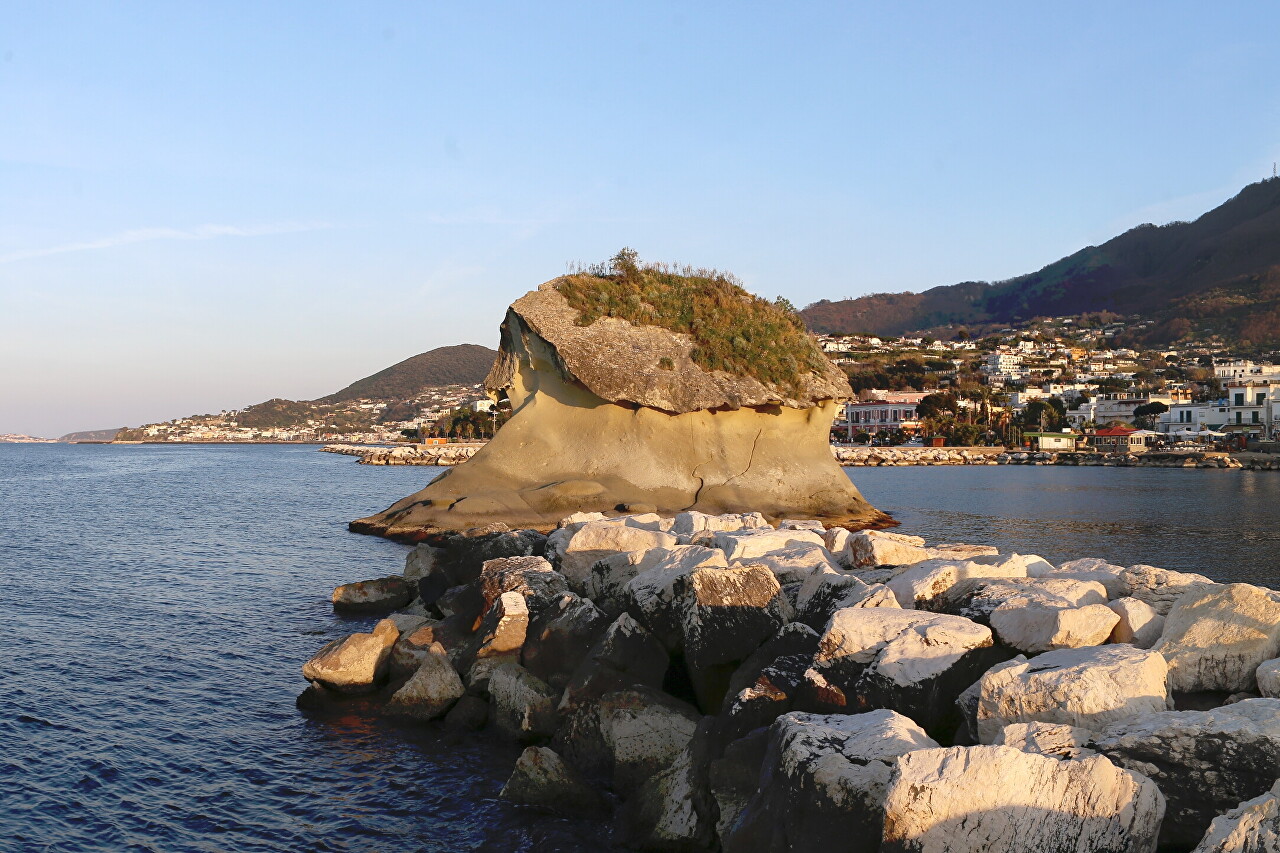
It offers a wonderful view of the Via Roma promenade and the green slopes of the island's highest mountain, Monte Epomeo. Although the top of this extinct volcano is very close to the city, very steep slopes do not interfere with the ascent to it and this route is of interest only for extreme sports enthusiasts. The hiking trail to the top comes from Fontana village on the other side of the mountain.
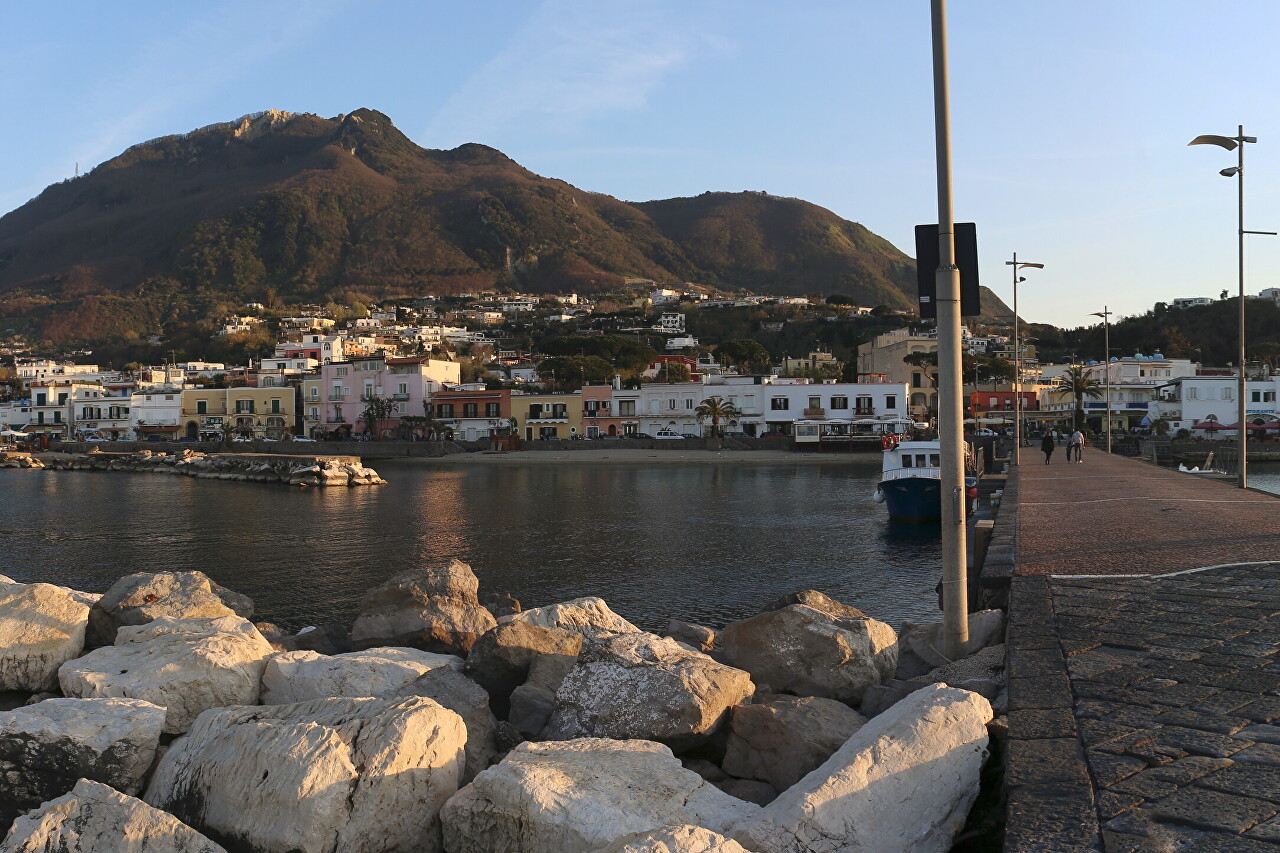
In the other direction, there is a long pier that protects Lido Ithaca Beach and the fishing boat parking lot from the open sea.
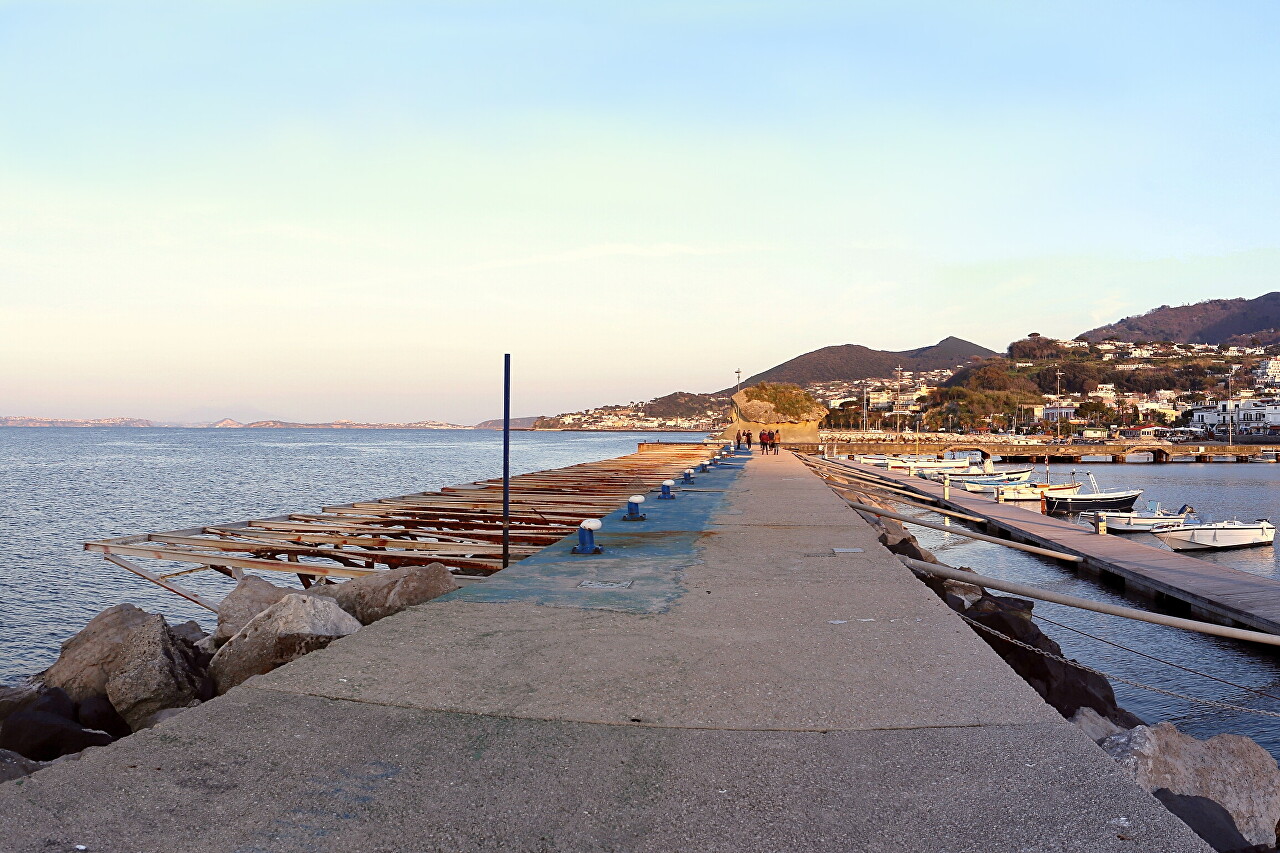
The evening was warm and quiet, so I walked to the end of the pier and took a couple of panoramas.
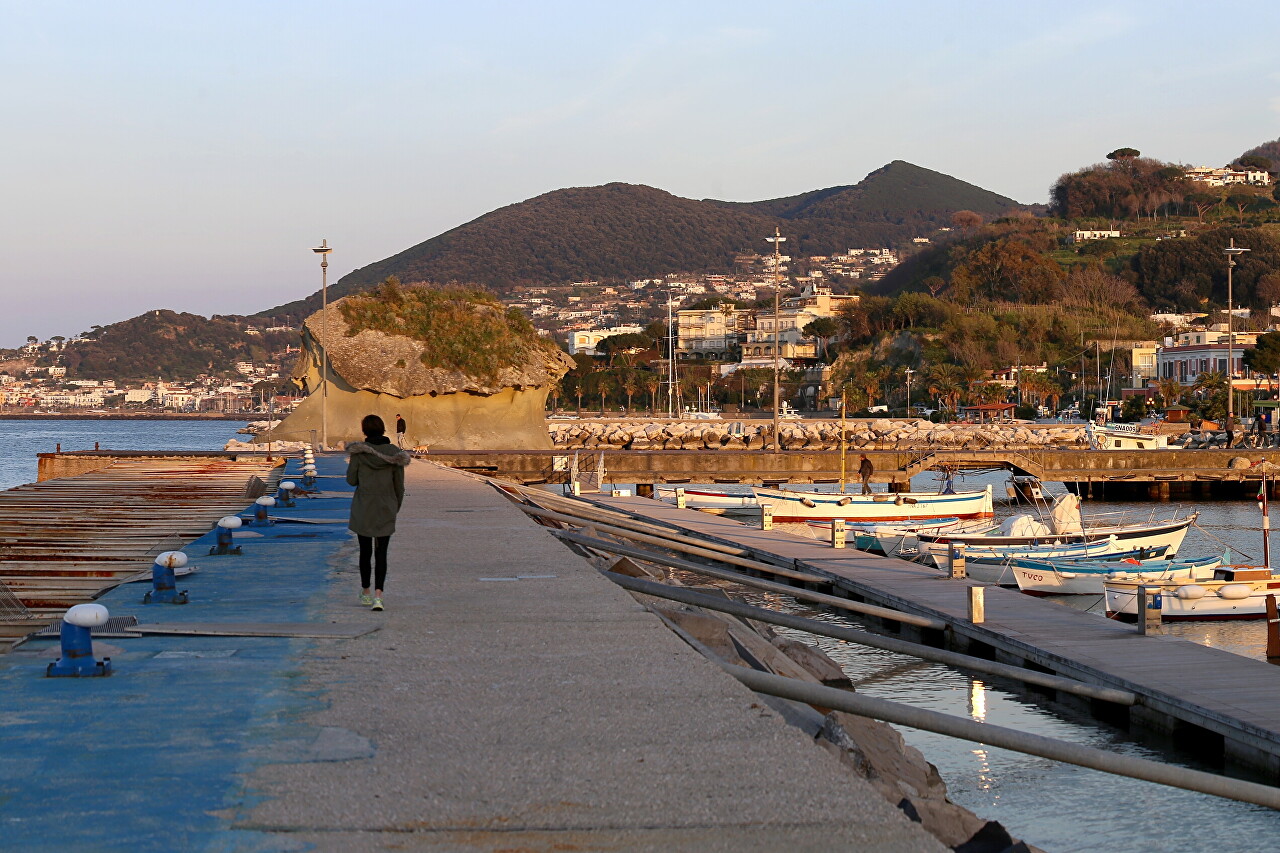
Meanwhile, the sun began to sink behind the slope of another mountain, Monte Vico, and everything around was painted in amazing golden tones.
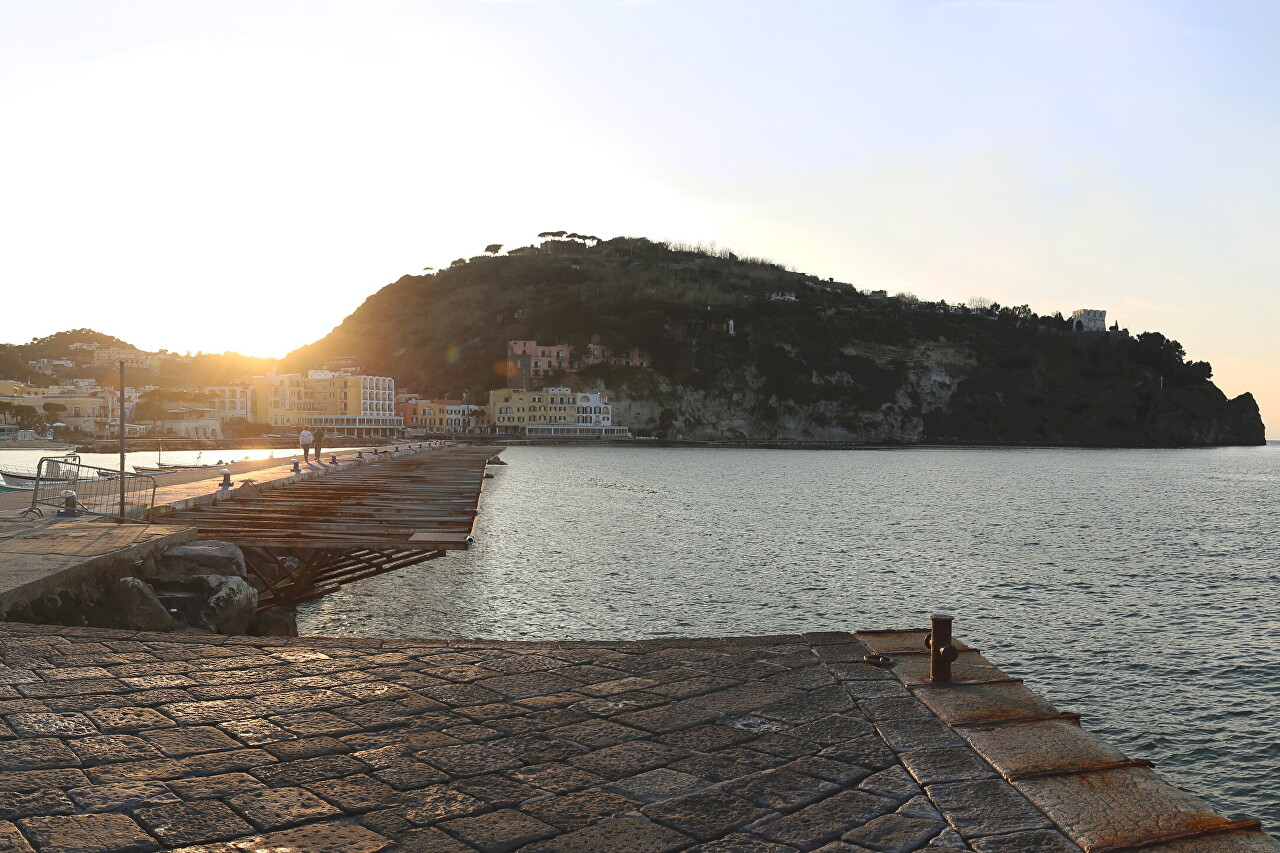
Very soon the sun was behind Monte Vico, and the embankment was in shadow.
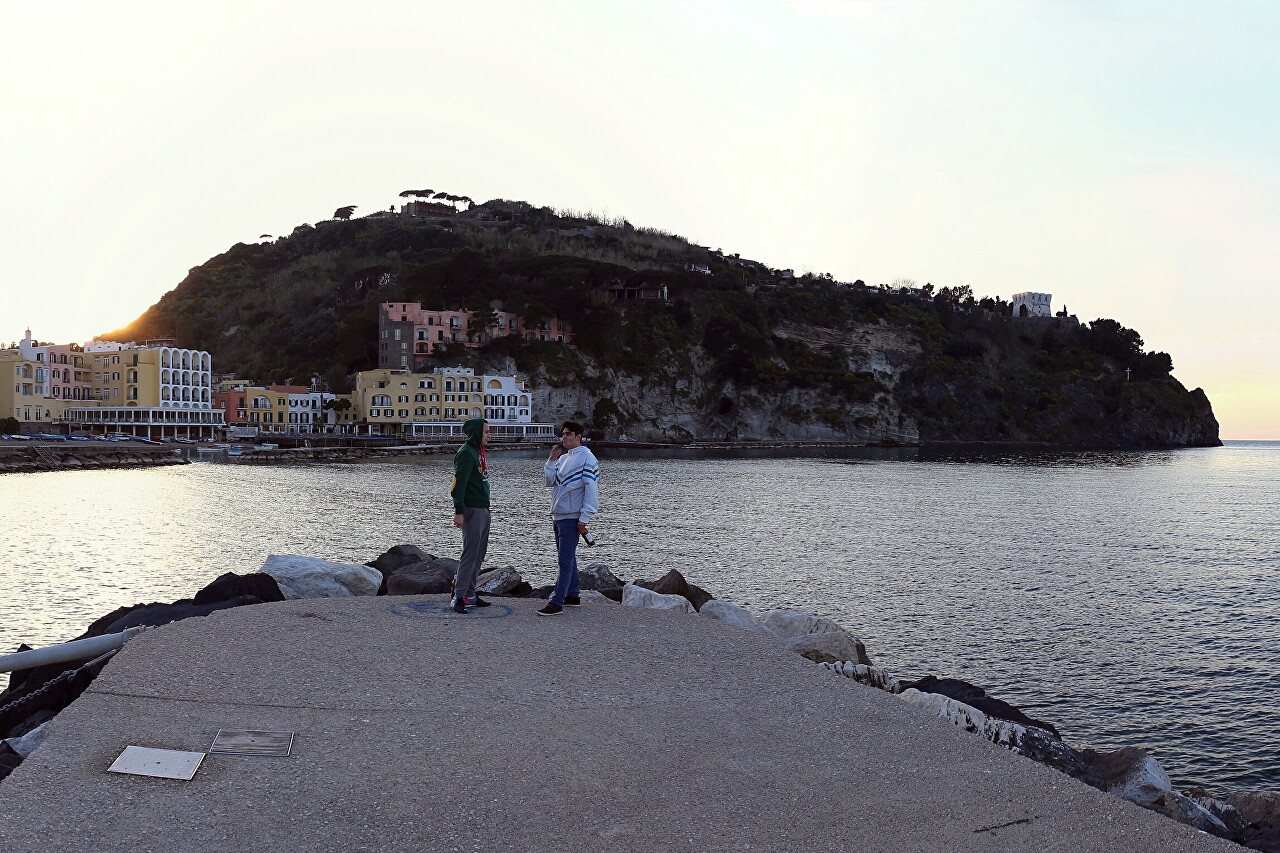
But the slopes of Monte Epomeo were still bathed in soft sunlight. I watched the sun's shadow move across the surface of the jetty.
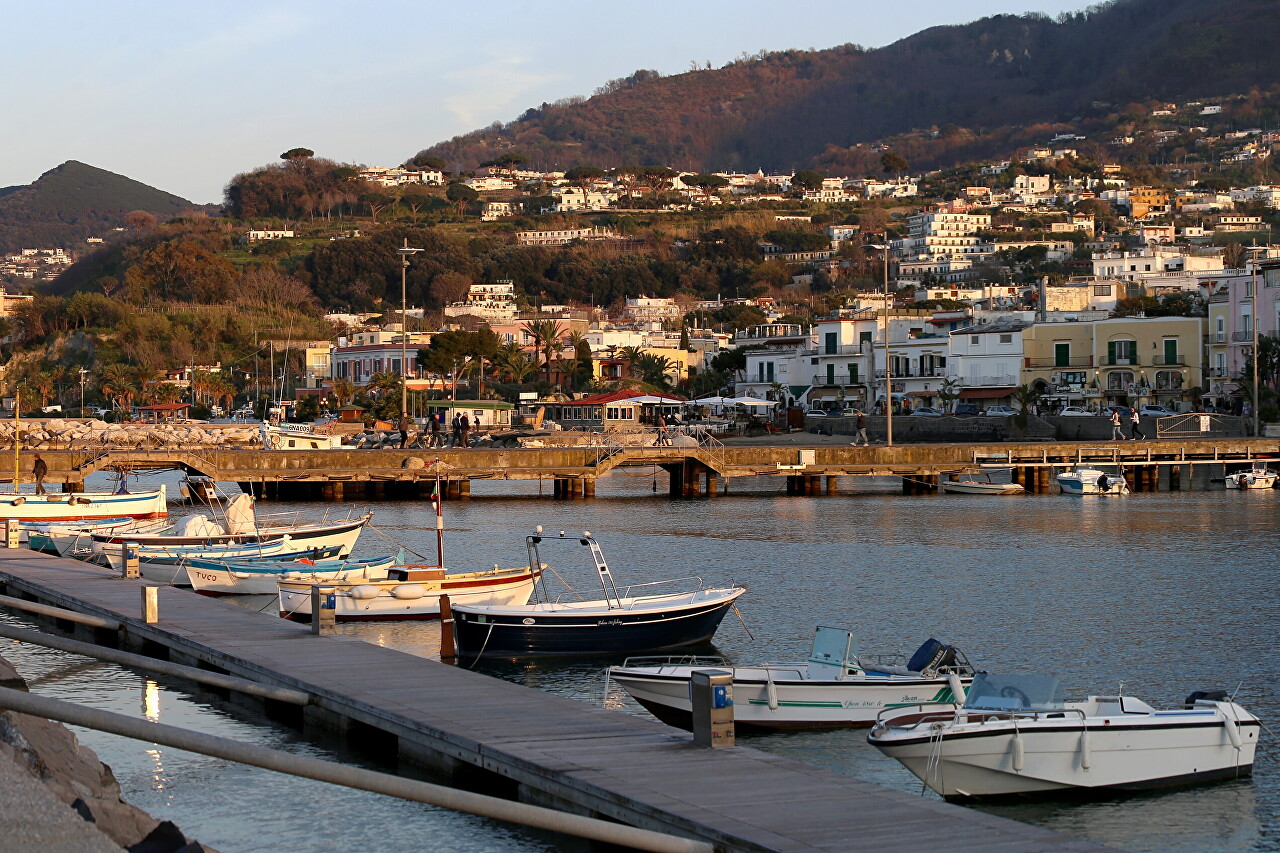
This was the end of my brief acquaintance with the town of Lacco Ameno. And I once again envied those who stay on the island for at least ten days.
